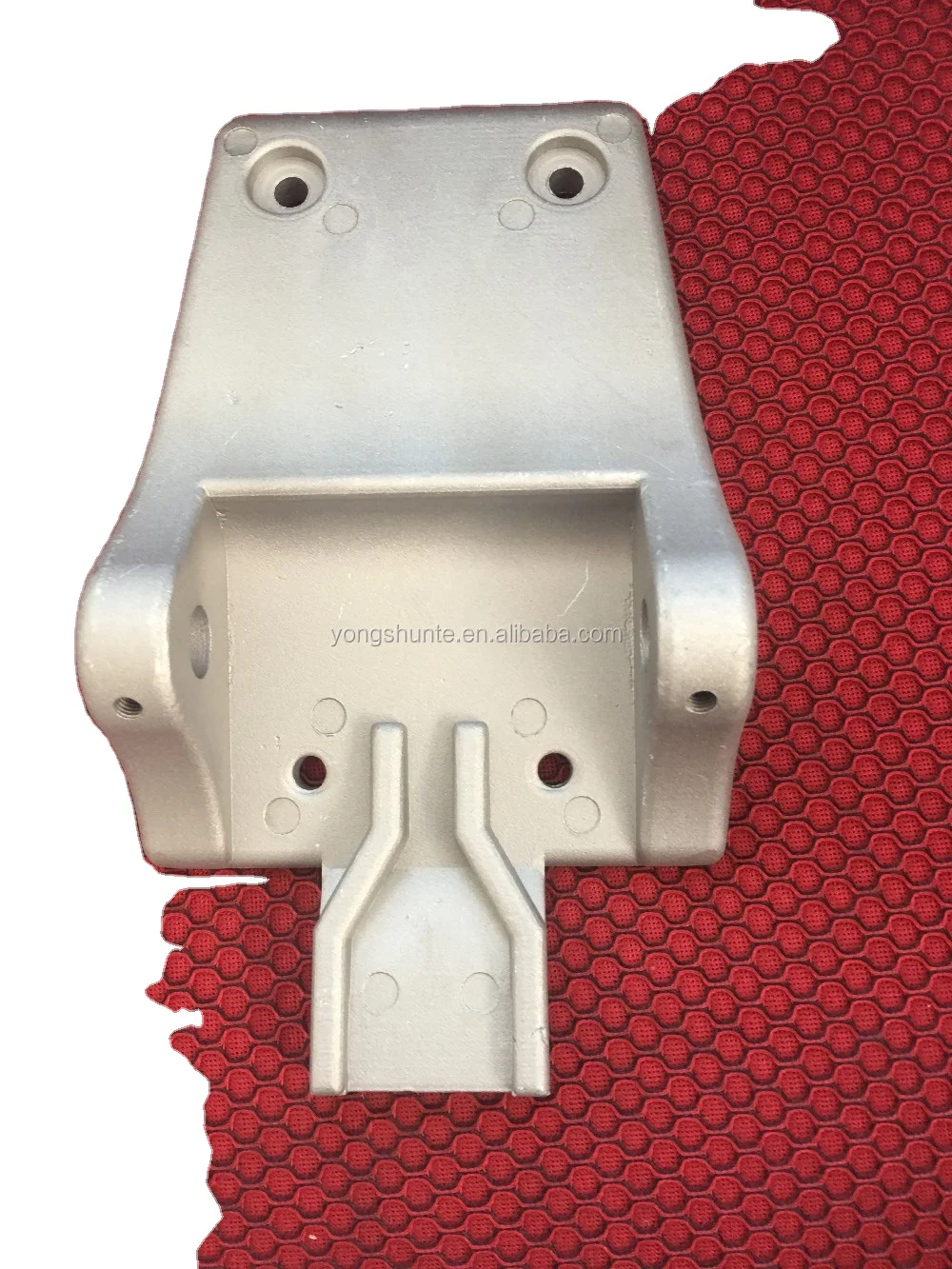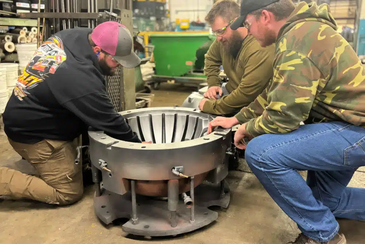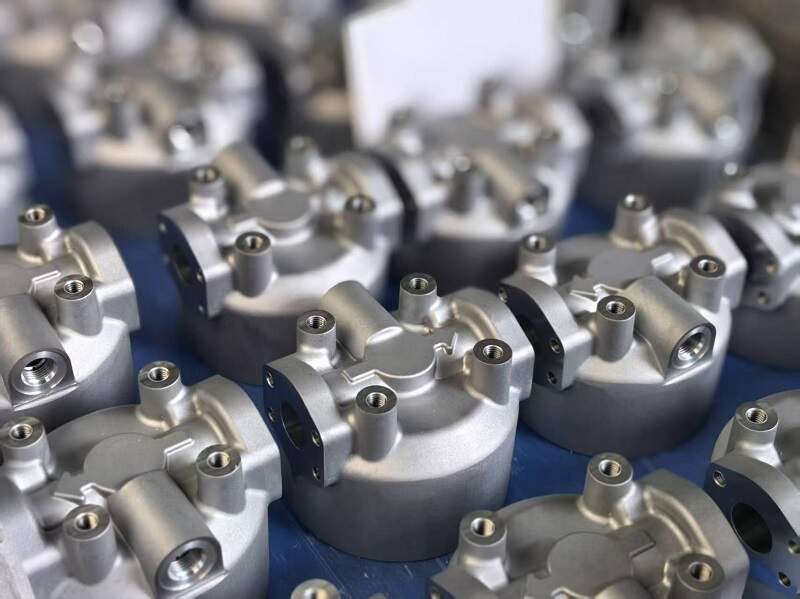How aluminum casting contributes to sustainable manufacturing
Wiki Article
The Duty of Light Weight Aluminum Foundries in Advancing Lightweight Production Solutions
Aluminum foundries substantially contribute to the evolution of light-weight production solutions. Their cutting-edge spreading innovations yield high-strength, lightweight parts crucial for industries such as automotive and aerospace. This improvement not just enhances product efficiency yet likewise advertises sustainability via making use of recycled materials. As these foundries adjust to emerging innovations and practices, they lead the way for future developments in producing performance and environmental obligation. What lies ahead in this transformative journey?The Advantages of Lightweight Products in Production
As industries progressively seek effectiveness and sustainability, the fostering of light-weight products in manufacturing has become a necessary technique - Precision aluminum casting. These materials, particularly aluminum and compounds, offer numerous advantages that improve manufacturing procedures and item performance. Mostly, their lowered weight contributes to lower energy intake throughout transport and operation, bring about significant price financial savingsLightweight products help with the style of even more complex geometries, permitting for better innovation in product growth. This versatility typically results in boosted performance and efficiency, providing to the evolving needs of modern consumers.
Furthermore, making use of light-weight products can boost the durability of items as a result of their resistance to corrosion and exhaustion. This toughness not just minimizes maintenance expenses however also sustains sustainability campaigns, as longer-lasting items contribute to much less waste. To summarize, the advantages of light-weight products are essential in driving performance, innovation, and environmental responsibility in manufacturing.
Innovations in Light Weight Aluminum Casting Technologies
Current improvements in light weight aluminum spreading technologies are reinventing the production landscape, specifically in the manufacturing of light-weight parts. Developments such as high-pressure die spreading and vacuum pass away spreading have actually considerably boosted the accuracy and surface coating of aluminum components - Aluminum Foundry. These methods enable for the production of complex geometries while lessening material waste and enhancing mechanical residential or commercial properties
Furthermore, the implementation of real-time monitoring systems assures quality assurance throughout the spreading procedure, leading to even more consistent product results. Jointly, these advancements not just improve the efficiency of light weight aluminum elements yet likewise sustain the sector's change in the direction of even more sustainable production methods.
Applications of Aluminum Parts in Numerous Industries
While light weight aluminum elements have actually long been utilized in numerous industries, their adaptability and light-weight residential or commercial properties continue to drive cutting-edge applications throughout markets such as auto, aerospace, and building and construction. In the automobile sector, light weight aluminum is increasingly used for engine blocks, wheels, and body panels, enhancing gas effectiveness and efficiency. Aerospace producers leverage aluminum for airplane structures and parts, profiting from its strength-to-weight proportion to boost gas economic climate and haul capacity.In the building and construction market, light weight aluminum is favored for window frames, roof, and structural components, offering durability and resistance to rust while minimizing overall building weight. Furthermore, the electric and electronics markets gain from light weight aluminum's conductivity and lightweight nature, using it in circuitry, enclosures, and warm sinks. These varied applications highlight the essential role of aluminum elements, which not just satisfy industry demands however additionally add to innovations in product style and capability throughout numerous fields.
Sustainability and Energy Performance in Aluminum Foundries
The aluminum factory sector plays a vital function in promoting sustainability and power efficiency, particularly as need for light-weight parts remains to expand throughout different sectors. Foundries are increasingly embracing eco-friendly practices, such as utilizing recycled aluminum, which considerably minimizes energy consumption and greenhouse gas emissions contrasted to main light weight aluminum manufacturing.Advancements in casting technologies enhance energy performance by optimizing the melting processes and lowering waste. Techniques like die casting and investment spreading permit precise material use, reducing excess and scrap.
Furthermore, lots of shops are buying renewable energy sources to power procedures, even more decreasing their carbon impact. Implementing power management systems enables shops to monitor and boost power usage, ensuring they run at peak efficiency.

Future Fads in Lightweight Manufacturing Solutions
Just how will emerging innovations shape the future of lightweight production solutions? Technologies such as sophisticated products, automation, and additive manufacturing are set to redefine manufacturing procedures. more info The integration of clever manufacturing technologies, including the Internet of Points (IoT) and artificial intelligence (AI), will allow real-time surveillance and optimization, boosting performance and decreasing waste.
As sustainability remains to be a critical worry, lightweight remedies will progressively focus on recycling and recycling materials, lining up with round economic situation concepts. This advancement in lightweight production will not only improve item performance yet also add to environmental objectives, guaranteeing that the market continues to be competitive in a rapidly altering market landscape.
Often Asked Concerns
Exactly How Do Light Weight Aluminum Foundries Make Certain Quality Assurance in Production?
Light weight aluminum foundries assure quality assurance in production via rigorous testing, standardized treatments, and constant tracking - Precision aluminum casting. They execute skilled personnel and advanced innovations to maintain consistency, reduce problems, and fulfill industry standards throughout the production procedureWhat Are the Main Challenges Dealt With by Aluminum Foundries?
Light weight aluminum foundries encounter obstacles such as varying raw product prices, keeping production performance, making certain constant high quality, adjusting to technical innovations, and conference environmental policies, every one of which effect their overall operational performance and competitiveness in the market.Just How Does Aluminum Recycling Effect Foundry Procedures?
Aluminum recycling significantly enhances foundry operations by minimizing resources expenses, decreasing power usage, and reducing environmental effect. This lasting practice enables foundries to enhance efficiency while fulfilling boosting demand for light-weight, high-performance light weight aluminum items.What Abilities Are Needed for Employees in Aluminum Foundries?
Employees in aluminum shops call for abilities in metallurgy, machining, quality assurance, and security methods. Effectiveness in running machinery, comprehending alloy residential or commercial properties, and problem-solving are also crucial for efficient production and keeping high safety criteria.Exactly How Do Light Weight Aluminum Foundries Handle Waste Management?
Light weight aluminum factories manage waste through recycling scrap steel, utilizing reliable waste partition strategies, and sticking to environmental policies. They implement sustainable techniques to decrease land fill payments, making certain that harmful products are gotten rid of properly.Light weight aluminum factories greatly contribute to the evolution of light-weight manufacturing remedies. Current developments in aluminum casting modern technologies are changing the production landscape, specifically in the production of lightweight components. While aluminum elements have long been used in different sectors, their flexibility and lightweight homes continue to drive ingenious applications across industries such as automotive, aerospace, and construction. In addition, the electric and electronic devices industries profit from aluminum's conductivity and light-weight nature, utilizing it in circuitry, enclosures, and heat sinks. The aluminum shop sector plays an important duty in advertising sustainability and power efficiency, especially as need for lightweight parts continues to expand throughout different industries.
Report this wiki page